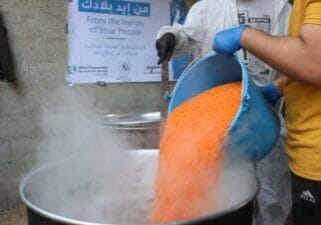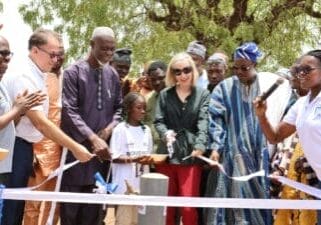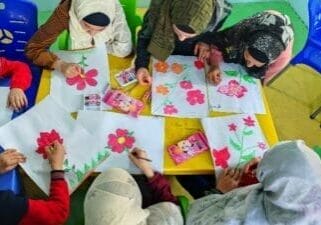News > Blog
Supporting War-Affected People in Ukraine: Insights from Our Protection Manager
Published 11/30/2023 by Global Communities

By Paula Rudnicka, Sr. Manager for Public Affairs at Global Communities
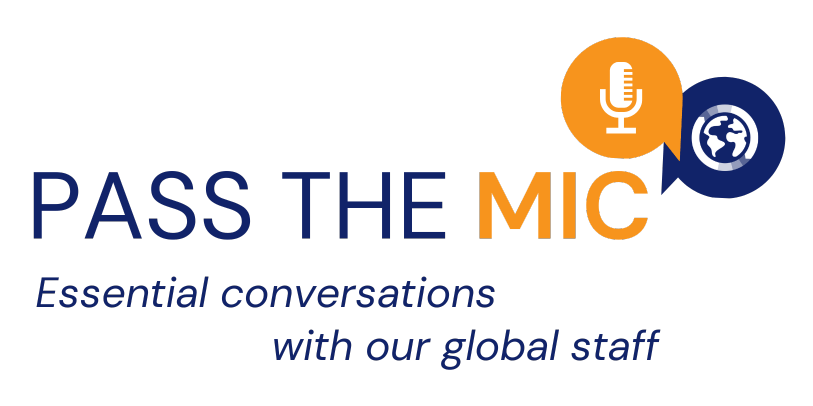
I remember feeling frightened and devastated when the full-scale Russian invasion of Ukraine began unfolding on my television screen in February 2022. While these feelings were, and still are, not isolated, there is something incredibly jarring about watching the neighboring country being attacked by one of the world’s superpowers. I am originally from Poland, which shares borders, a long history and many traditions with Ukraine, and where intergenerational war trauma is still very much alive. Things hit close to home, very quickly. Since the war started, more than 15 million people have crossed the Polish border from Ukraine and more than 1.6 million have applied for protection in Poland alone. Globally, there are 6.3 million Ukrainian refugees. More than 5 million people are estimated to be displaced internally, and over 17 million people need urgent humanitarian assistance inside Ukraine. That’s nearly half of the country’s current population.
Global Communities, where I have been working for over 2.5 years, has had a long presence in Ukraine. Since 2016, we have been leading the Decentralization Offering Better Results and Efficiency (DOBRE) program, funded by the United States Agency for International Development (USAID). When the full-scale invasion commenced, DOBRE began leveraging its networks to provide rapid emergency response to conflict-affected populations and to assist at least 60 communities in 10 oblasts (provinces) in their war recovery efforts. Simultaneously, Global Communities has partnered with USAID’s Bureau for Humanitarian Assistance (USAID/BHA) to implement the Community-Led Emergency Action and Response (CLEAR) program in the Chernihiv and Chernivtsi oblasts. CLEAR works through local civil society organizations (CSOs) to address urgent protection, shelter, water, sanitation and hygiene needs, including through direct cash assistance.
Earlier this year, I traveled to Chernivtsi to meet our incredible team and observe how our DOBRE and CLEAR programs work in tandem to support Ukrainian people on their journey from crisis to resilience. Located in western Ukraine, Chernivtsi is the smallest oblast, with a population of less than 1 million. While the oblast has been relatively unaffected by direct hostilities, it is now home to approximately 100,000 people who have been displaced from other parts of the country, mostly from the east and the south.
On the first day of my trip, I sat down with Oksana Mykhailenko, Global Communities’ Protection and Gender-Based Violence Prevention Manager, to discuss the opportunities and challenges of providing emergency assistance in Ukraine. The interview was conducted in Ukrainian with English interpretation provided by Tetiana Dudnyk, CLEAR Communications Officer at Global Communities. The conversation was edited for length, clarity and flow of information.
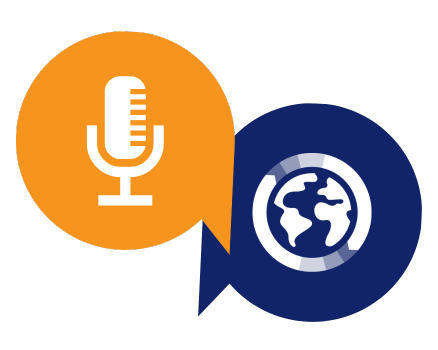
Paula: Could you tell me a bit about yourself and your role at Global Communities?
![]()
Oksana: I joined Global Communities, specifically the CLEAR program in Ukraine, in November 2022. At first, I was a technical officer for the prevention of gender-based violence (GBV). Now, I also manage our protection activities. I have been working for non-governmental organizations in Ukraine since 2006, and these topics are very close to my heart.
Prior to the war, Ukraine had a vibrant community of professionals working on gender and health issues. This proved critical after the onset of the invasion, when the Ukrainian government lost the ability to react quickly to the needs of women, people with disabilities, and other vulnerable populations, especially in the occupied territories. Through our professional network, we were able to distribute medications, contraceptives, food and other basic commodities.
My current role at Global Communities entails many responsibilities, such as advising our staff, government officials and civil society partners on how to provide emergency assistance in a safe, respectful and dignified way. For example, it is important to ensure that we do not ask women intimate questions in front of other people. Or that bathrooms in centers for displaced people have locks; otherwise, some women and girls may be afraid to use them. Most organizations and service providers in Ukraine are still getting used to working in humanitarian settings. They are full of energy and desire to help people, but they can cause harm if they are unaware how to do it properly.
Paula: How has the war affected your life, personally and professionally?
![]()
Oksana: I am originally from Nova Kakhovka — a city in the Kherson oblast — which has been under Russian occupation since February 2022. The day the war started was the worst day of my life. At that time, I was in Kyiv conducting a training and could not return to my hometown. I had to wait half a year before I could see my family. Right now, my young daughter lives with me here in Chernivtsi. A lot of my colleagues have moved here as well. My husband and son have joined the Ukrainian armed forces and are away. As you know, in June, the Nova Kakhovka dam was destroyed, which caused a massive flooding in the area. We cannot even get to our home because of the occupation. Things are hard, but I understand very well what people need. I am glad to have found the position with Global Communities.
Paula: I am sorry you have faced so many personal challenges, and I am grateful for all your work at Global Communities and beyond. What are the most critical needs of war-affected people in the Chernivtsi oblast?
![]()
Oksana: It is necessary to support all people who have suffered from the impacts of the war, including displaced people, host communities, those who return from the frontlines, and those who have been directly affected by hostilities. And it is important to include all categories of vulnerable people. Of course, people’s needs depend on their personal situation. They change and grow constantly, and we do not know when they will end. For example, when displaced people first arrived in the Chernivtsi oblast, they needed places to stay, food, clothes and hygiene essentials. Then, they needed winter preparation assistance. Now, they need cash and credit so that they can regain control of their lives and rebuild their livelihoods, rather than being dependent on external assistance indefinitely.
Another issue is that many people moved to the Chernivtsi region — which is mostly rural — from big cities, and are now forced to live in small villages, which do not have adequate infrastructure to accommodate them. They need daycare centers, schools and clinics. Local governments are trying to help, but they have limited resources. Humanitarian assistance should not only be about meeting people’s basic needs; we should also focus on the quality of people’s lives. While temporary settlements are vital, a woman with small children should not walk five kilometers to the nearest shop for extended periods of time.
Finally, people need jobs. Many people displaced from eastern Ukraine are engineers and technicians, which are not popular professions in this part of the country. They are unable to work in their prior occupations, so they need vocational and business skills training to support their economic integration. Workplace creation is also key.
Paula: What needs to be done to protect people in Chernivtsi from psychological harm arising from the war?
![]()
Oksana: Again, different groups of people need different things. For example, teenagers and young people need socialization and educational activities. They suffer a lot because they have lost their friends, homes and schools. Many still study online and feel isolated. We should do our best to involve them in rebuilding activities. They need to be included in community life. They are the future of Ukraine.
We also need to pay special attention to displaced families, especially women with small children whose husbands and fathers are on the frontlines. In addition to the economic hardships, they are now the primary caregivers not only for their children, but also elderly family members. Many have to build their lives from scratch and do everything by themselves. They need psychosocial support and opportunities to rest, relax and connect with others.
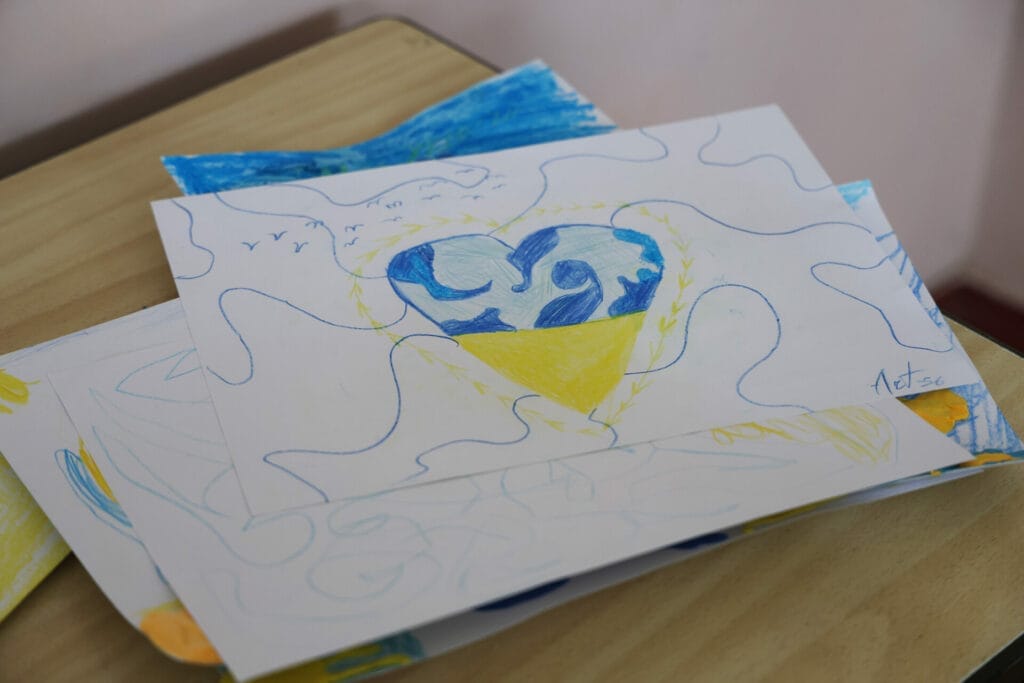
Paula: How does Global Communities respond to these needs?
![]()
Oksana: We have a lot of inspirational results. Our CLEAR program partners with local civil society and community-based organizations to offer group-based psychosocial support to displaced people, create safe spaces and organize community events, such as art therapy classes, sporting activities and cultural festivals. These events promote healing and integration. We involve local residents, too, to build trust and social cohesion. It is very important for displaced people, including children, to get together and socialize. It makes them feel better and decreases anxiety because they get acquainted with the local life. At the same time, host communities learn about the culture and traditions dominant in eastern Ukraine, so this is mutually beneficial. CLEAR also organizes workshops on the prevention of domestic violence for displaced women. While they might have had support systems in their hometowns, they do not know where to seek help after moving to Chernivtsi.
Paula: What are some of the challenges associated with the integration of displaced people in the Chernivtsi oblast? How can we strengthen social cohesion within host communities?
![]()
Oksana: There are significant demographic, cultural and even linguistic differences between western Ukraine and the eastern part of the country, which is perceived to be more “Russian.” We see many lingering beliefs and stereotypes about eastern Ukraine here. This creates misunderstandings and tensions. Local people are quite resentful that Ukrainians from the east do not speak Ukrainian and are surprised to learn that they follow Ukrainian traditions, too. For example, they wear similar embroidered shirts, just with different patterns. Local residents are welcoming, but they also feel the economic burdens caused by displacement. These social dynamics are complicated, but the events I mentioned before show us that we have more in common than we had thought.
Paula: Could you share more about your work with community-based organizations?
![]()
Oksana: Our local partners do really great things. This is a successful approach because civil society organizations know their communities and their needs. They also have their unique skillsets, experiences and methodologies. But there are also challenges. International donors and organizations, like Global Communities, have many complex compliance requirements, which are burdensome and difficult to understand by small organizations. For example, CLEAR has strict vulnerability criteria for selecting recipients of humanitarian assistance. So, we provide oversight and increase their technical, financial and administrative capacities so that they can influence sustainable changes in their communities more effectively.
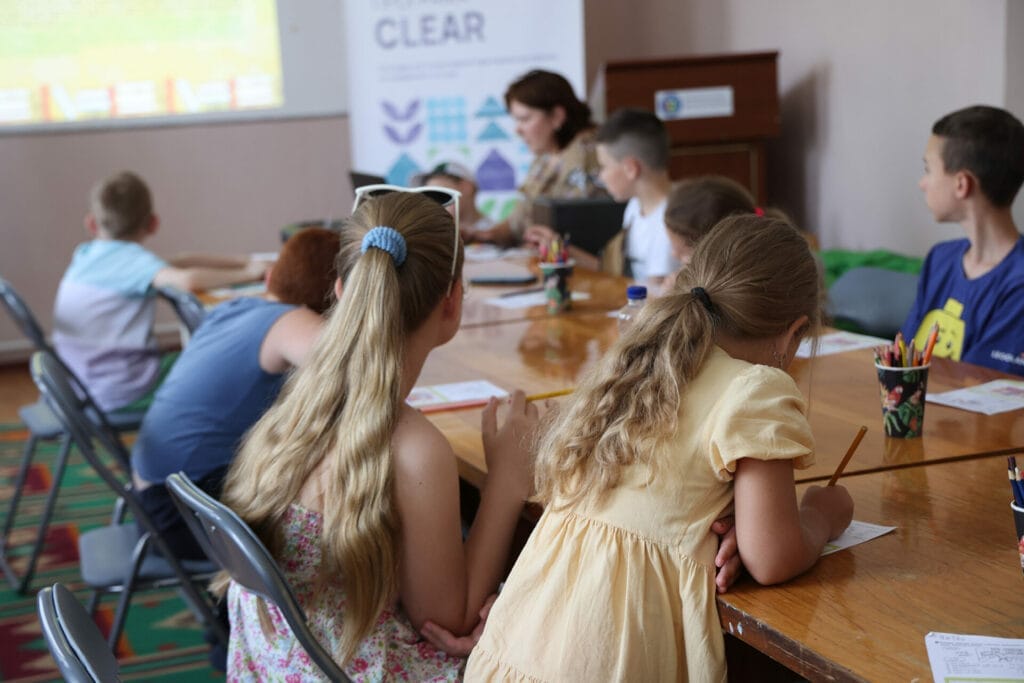
Paula: What else should Global Communities and other humanitarian organizations do to support conflict-affected people and contribute to long-term recovery efforts in Ukraine?
![]()
Oksana: It is crucial to start designing rehabilitation and reintegration services for war veterans, their families and communities receiving them. Many people fighting for our country are not military professionals. They are civilians conscripted to the army and sent to the battlefields on short notice. They will need a lot of support, including psychological counseling, before they can resume normal lives. We should be already working with families and communities to prepare for their return.
Paula: Do you have any final thoughts you would like to share?
![]()
Oksana: I would like to call attention to the fact that we are facing a significant shortage of professionals specializing in protection and psychosocial support in Ukraine. Many specialists have left the country and others are compelled to wear multiple hats at different humanitarian organizations across Ukraine. This can easily lead to burnout. We are all working under very difficult circumstances, and we are exposed to vicarious trauma in addition to our own. I encourage the international and donor communities to pay attention to this important issue and help those who are helping others.
Paula: Thank you for your time! How can our audiences learn more about your work?
![]()
Oksana: To learn more about Global Communities’ work in Ukraine please visit our website and read our recent story Art Therapy for Ukrainian Children Helps Reduce Stress Under Everyday Shelling. If you have questions about our programs, please email us at [email protected].

Oksana Mykhailenko
Oksana Mykhailenko is a Protection and GBV Prevention Manager with Global Communities’ CLEAR program in Ukraine. She started her professional career as a school psychologist. Three years later, she became the head of the new psychological service at educational institutions in Nova Kakhovka and continued to work in this capacity for 15 years. In 2006, Oksana co-created a youth NGO and later became an expert in GBV prevention, gender equality and peace building. In her capacity as a GBV expert trainer, Oksana worked with UNFPA, UNDP, IREX, ILO, NDI, Successful Woman Kherson Oblast Center, the Ukrainian Women’s Fund and the National Police of Ukraine.
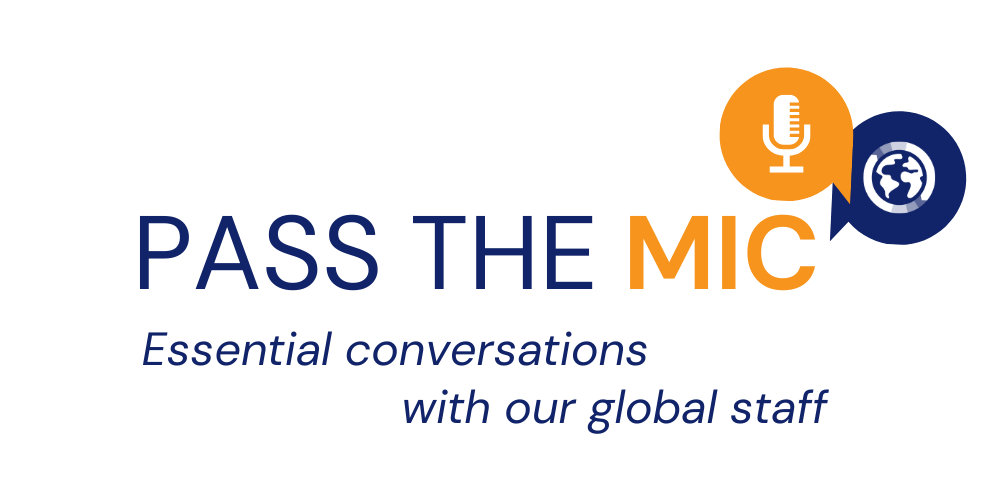
Global Communities is home to a diverse team of professionals with a broad range of expertise and perspectives that help us build the world we envision: one of expanded opportunity, where crises give way to resilience and all people thrive. In our “Pass the Mic” series, our global staff share innovative ideas and in-depth insights on timely topics spanning the development, humanitarian and peace nexus. Learn how our colleagues are co-creating a more just, prosperous and equitable global community.



